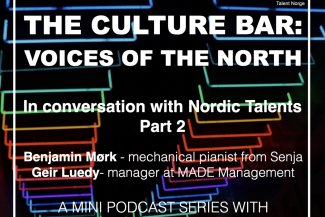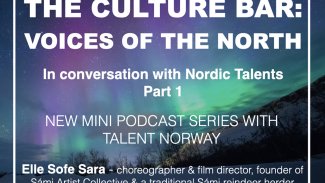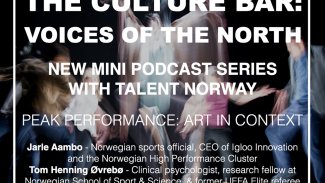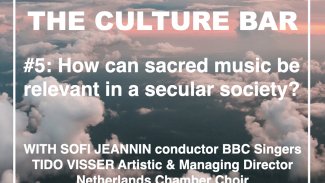THE CULTURE BAR: VOICES OF THE NORTH — IN CONVERSATION WITH NORDIC TALENTS PART 2
16/12/2020

Voices of the North
We are excited to share with you our third podcast in the new series ‘Voices of the North’ podcast mini-series in collaboration with Talent Norway and Sparebank1 Nord-Norge, Samfunnsløftet
Our third podcast is ‘Conversations with Nordic talents and their mentors: Benjamin Mørk: a mechanical pianist from Senja’. This time we listen to a conversation and reflection between a young musician and his mentor. They discuss sources of inspiration, the joys of mentorship and the challenges and opportunities young artists growing up in the North are currently facing.
Our guests:
- Benjamin Mørk (pianist)
- Geir Luedy (manager at MADE Management, musician, songwriter, and music producer)
Hosted by HarrisonParrott’s Karoline Melstveit.
Voices of the North is a part of the agreement and collaboration between Talent Norge and SpareBank 1 Nord-Norge, Samfunnsløftet. Together they ensure that exceptional talents have access to artistic support programmes where they live.
The Culture Bar is a podcast series created by HarrisonParrott focussing on conversations in culture and the arts.
Find us on Spotify, iTunes, Google Podcasts, YouTube, Podbean, Deezer and all good podcatcher sites.
#theculturebar #voicesofthenorth
A special thank you to Robert Cochrane as the composer of the theme tune music, and Merlyn Thomas our editor.


